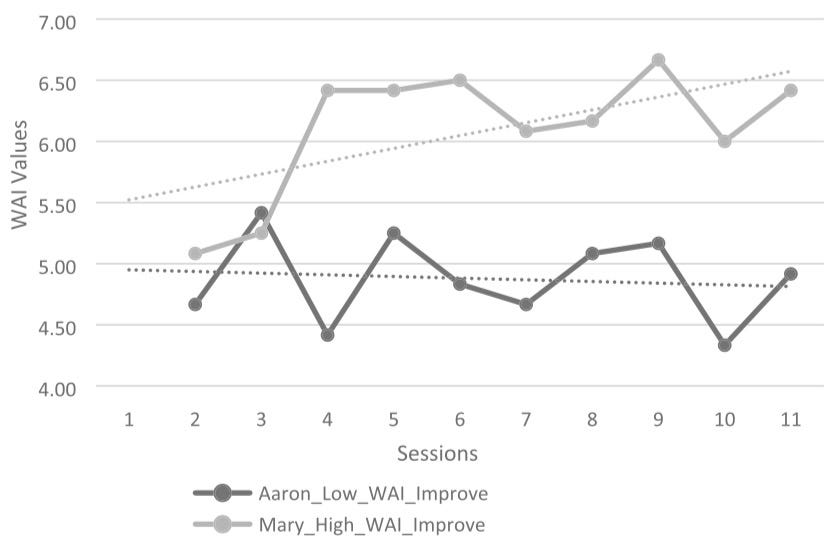Frontiers Friday #98. Emotions & Voice 🎤 (Part IV)) ⭕

FF98 Emotions and Voice (Part IV)
Last , we talked about the counter-intuitive finding that paying attention to the voice alone leads to more emotional accuracy than visual and vocal inputs combined. We also talked about why we don't like the sound of our own voice, and other related bits.
This week, we have 5 more recommendations on the relationship between emotions and the voice.
If you are time-pressed, read the first recommendation and save the concert performance in #4 for the weekend.
In case you missed the two previous missives on Emotions,
👓 Read: What do these sounds tell us about the therapeutic alliance
I've only just completed reading this article. It blew my mind.
Here's what these impressive Israeli researchers found:
Based on a 3-min recording of your voice (based on a question like "Why do you seek therapy") before therapy began, these acoustic markers can predict the trajectory of alliance formation over the course of treatment! Specifically,
i. The model explained "22% of the variance in alliance formation".
ii. Higher levels of jitter and pauses in speech (remember, this is sampled before therapy began), predicted less increase in the working alliance over time in therapy.
For illustration, the researchers provided 2 clinical examples in their study. Based on the graph below, Aaron's acoustic markers based on his 3 min pre-therapy speech recording indicated higher levels of jitters and pauses, compared to Mary.

While this is a small study of 38 patients, seen by 6 experienced therapists, the results are pretty amazing.
However, I'm not exactly sure how directly translatable this is on a practical level. My intuitive response to this study is that as you listen to the content of what is being said in therapy, it certainly pays to listen carefully to the quality of speech pattern in your client's voice, especially at the initial stages.
Having said that, nothing was mentioned if therapists and clients in this study actually actively monitored the alliance formation, session-by-session. Pausing and paying attention to each session's level of engagement can help the therapist to calibrate and meet client's where they are at, and address ruptures in order to repair them in real-time.
It would be misleading to conceptualise that the alliance formation is because of the client. In fact, a previous study by Baldwin, Wampold and Imel (2007), the researchers found that the alliance formation largely due to the contribution of the therapist.
Finally, it would also be interesting to see in a larger study, if a nested design study on the effects between therapists i.e., if the differences comparing therapists have an influence on these results.
📕 Read: This is Your Voice
If you wanna geek out about the use of voice, I recommend John Colapinto's book. Although only one chapter is devoted to the Voice and Emotions, much of the book is beyond the realm of our topic.
🎧 Listen: The Fascinating Secrets of Your Voice
If you prefer, listen to an interview with John Colapinto instead. It was through this podcast that I discovered his book.
Colapinto's take on the development of accents, the use of vocal fry (denoting "I'm calm, I'm in control," up-talk (where a person speaks a sentence as if it ends with a question, and why we are moved by imperfections in singing)
(Note: I was surprised by how his voice sounded. He explained why in this podcast episode).
📽 Watch: Bobby McFerrin Try This At Home
I must have watched this more than a dozen times.
Watch how Bobby McFerrin (yep, the guy who sang Don't Worry, Be Happy) takes to stage with no pre-conceived idea what he's gonna sing. Instead, he gathers what the audiences bring, and makes music with them in real-time, using nothing but the voice. Talk about engagement!
I bring this up in this list particularly because I wanted to highlight how powerful it is to say someone's name. Watch this segment starting around 14:20.
⏸ Words Worth Contemplating:
"The human voice is the first and most natural musical instrument, also the most emotional."
~ Composer, Klaus Schulze
Play Experiment:
1. Put on a timer, open your mouth and sing for 10 min.
Sing about how horrible your day was, what an annoying driver that guy was for cutting your lane, how wonderful a summer you are having, or whatever you are feeling.
2. Fight the urge to stop.
3. Notice how your critical side creeps in (I suck at singing /I'm out of tune/I'm crazy/I can even do this simple task).
Whenever you are out of your comfort zone, moving towards your movable frontier, you'd meet the voices in your head. One book title concisely describes this as "Art and Fear."
Beyond this singing experiment, whenever you are doing something worthwhile, don't be surprised to meet your fears. It means you are doing something worthwhile.
BIG HUGS TO NEW PEOPLE WHO ARE AT THEIR FRONTIER!
If you've just joined us, I'm glad you can join us at the "bleeding edge." Feel free to check out the back catalogue of Frontiers of Psychotherapists Development (FPD). You might also want to go into specific topics in the FPD Archives like
And if you want to see past newsletters, click here.
In case you missed it, see the most recent missives
(3 Parts)
(3 Parts)
(4 Parts)
Unintended Consequences (2 Parts)
(4 Parts)
(6 Parts)
(4 Parts)
(3 Parts)
(5 Parts)
(6 Parts)
(2 Parts)
(4 Parts)
(4 Parts)
(4 Parts)
My other blog site is called FullCircles: Reflections on Living
By the way, don't feel bad if you want to unsubscribe to this newsletter. This might not be for you. The last thing I want is to add to the anxious clutter of our inboxes.



